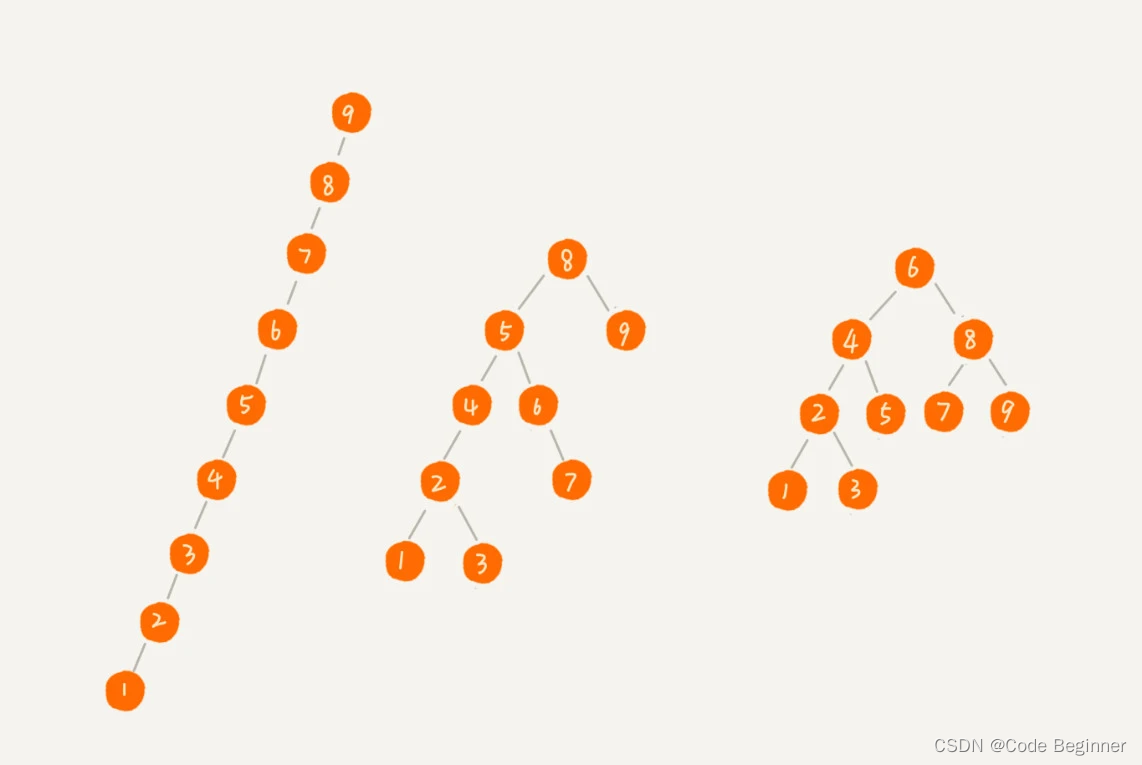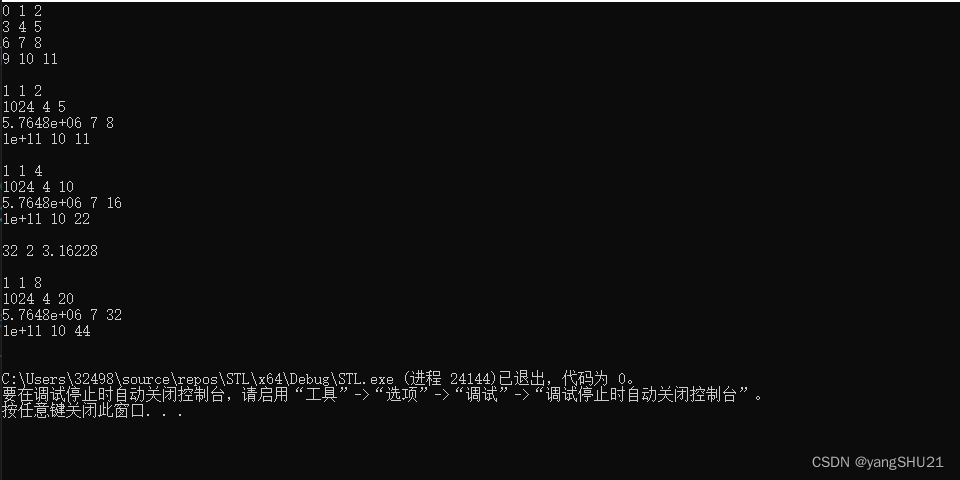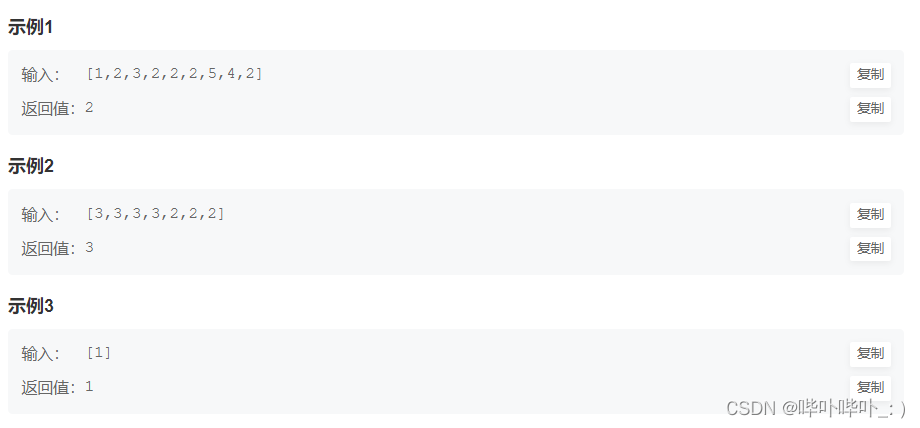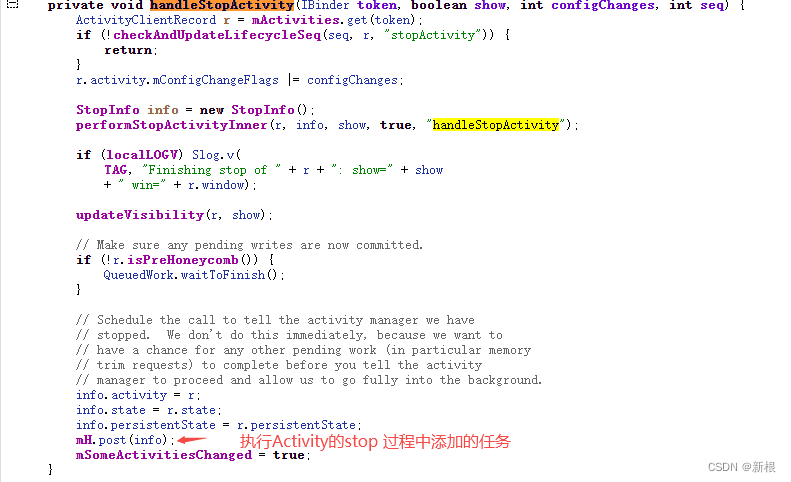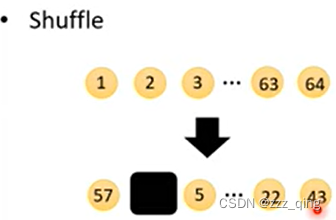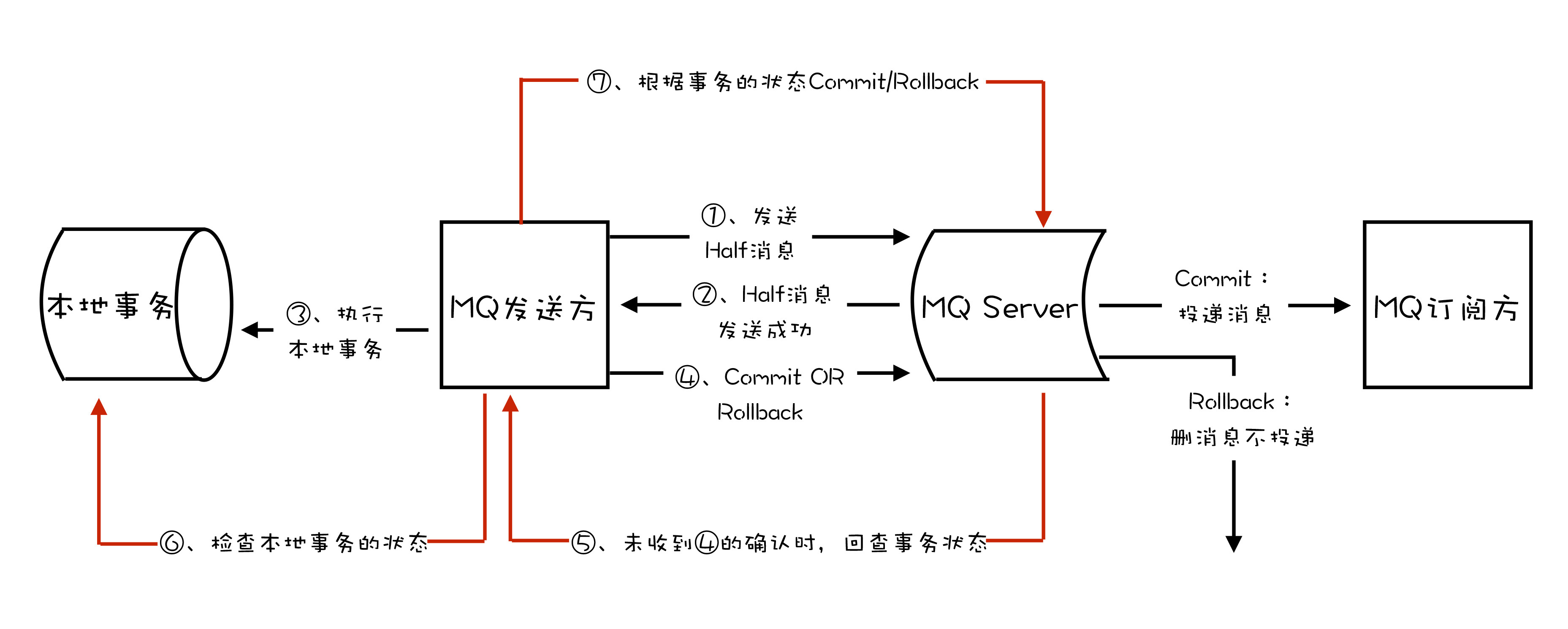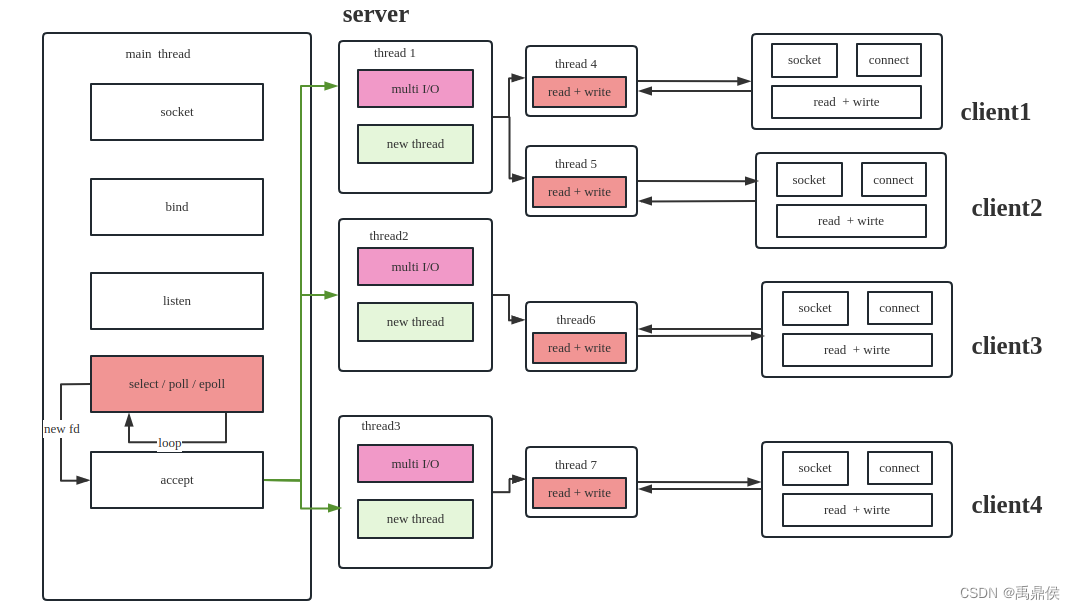Problem - E - Codeforces
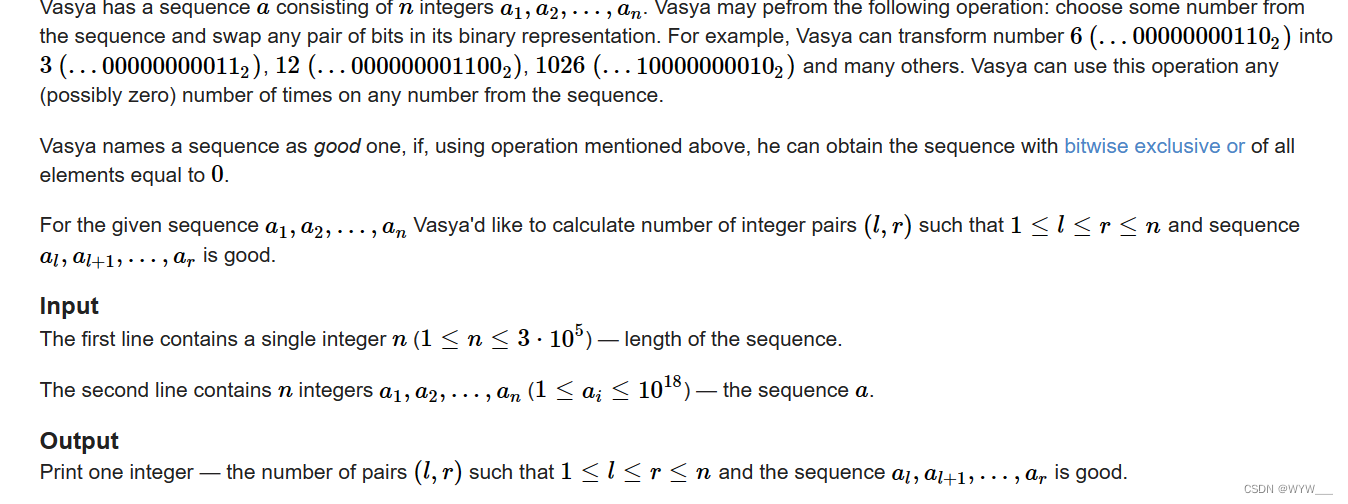
Vasya有一个由n个整数组成的序列a。 Vasya可以执行以下操作:从序列中选择一些数字,并交换其二进制表示中的任意一对位。例如,Vasya可以将数字6(… 000000001102)转换为3(… 000000000112),12(… 0000000011002),1026(… 100000000102)等等。 Vasya可以在任何数字上使用此操作任意(可能为零)次。
如果使用上述操作,Vasya可以获得按位异或所有元素均等于0的序列,则Vasya将序列命名为好序列。
对于给定的序列a1,a2,…,an,Vasya想计算整数对(l,r),使得1≤l≤r≤n且序列al,al + 1,…,ar是好的。
输入 第一行包含一个整数n(1≤n≤3⋅105) - 序列的长度。
第二行包含n个整数a1,a2,…,an(1≤ai≤1018)-序列a。
输出 打印一个整数 - 对于1≤l≤r≤n且序列al,al + 1,…,ar很好,返回配对(l,r)的数量。
Examples
input
Copy
3 6 7 14
output
Copy
2
input
Copy
4 1 2 1 16
output
Copy
4
在第一个示例中,(2,3)和(1,3)是有效的。当a2=7→11,a3=14→11且11 ⊕ 11 = 0时,对(2,3)进行配对是有效的,其中⊕表示按位异或运算。当a1=6→3,a2=7→13,a3=14→14且3 ⊕ 13 ⊕ 14 = 0时,对(1,3)进行配对是有效的。
在第二个示例中,配对(1,2),(2,3),(3,4)和(1,4)都是有效的。
题解:
对于这种求好区间有多少的题目,一般都是先枚举左区间,再枚举右区间,同时题目隐藏一些性质,大大减少了枚举的段数
我们可以任意改变一个数中一的位置,如果一段异或和为0,应该满足两个条件
1.1的数目为偶数
2.1的数目大于等于区间内1数目最大的两倍(不太好看出来,题目的关键)
有了这个条件,我们就可以枚举段数了,由于题目说,1<=ai<=1e18,
也就是说每个位置1的最小数目为1,最大数目大概为64,
如果一个区间长度为64,最小1的数目也有64个,肯定大于等于区间内1数目最大的两倍,也就是说每个i顶多往后数64个区间即可,不会t
枚举区间时,符合条件的++,对于超过最大限制区间的第二个条件肯定满足,我们只需通过后缀和,来看,后面多少加上后奇偶性满足即可
#include <cstdio>
#include <cstring>
#include <algorithm>
#include<iostream>
#include<vector>
#include<set>
#include<map>
#include<cmath>
#include<queue>
using namespace std;
typedef long long ll;
#define int long long
typedef pair<int,int> PII;
int mod = 1e9 + 7;
vector<int> p[200050];
int a[300050];
int c[300050];
int s[300050];
void solve()
{
int n;
cin >> n;
for(int i = 1;i <= n;i++)
{
int x;
cin >> x;
while(x)
{
if(x%2)
a[i]++;
x /= 2;
}
}
for(int i = 1;i <= n;i++)
{
s[i] = s[i - 1] + a[i];
}
for(int i = n;i >= 1;i --)
{
c[i] = c[i + 1];
if(s[i]%2 == 0)
{
c[i]++;
}
}
int ans = 0;
for(int i = 1;i <= n;i++)
{
int ma = a[i];
int sum = a[i];
for(int j = i + 1;j <= n;j++)
{
sum += a[j];
ma = max(ma,a[j]);
if(sum >= 2*ma&&sum%2 == 0)
{
ans++;
}
if(sum > 128)
{
if(sum%2 == 0)
{
if(s[j]%2 == 0)
{
ans += c[j + 1];
}
else
{
ans += n - j - c[j + 1];
}
}
else
{
if(s[j]%2 == 0)
{
ans += n - j - c[j + 1];
}
else
{
ans += c[j + 1];
}
}
break;
}
}
}
cout << ans;
}
signed main()
{
// ios::sync_with_stdio(0 );
// cin.tie(0);cout.tie(0);
int t = 1;
// cin >> t;
while(t--)
{
solve();
}
}![[数据库系统] 一、外键约束 (educoder)](https://img-blog.csdnimg.cn/6c7e65a18cfe4bf4a3fda4506bfca48e.png)




